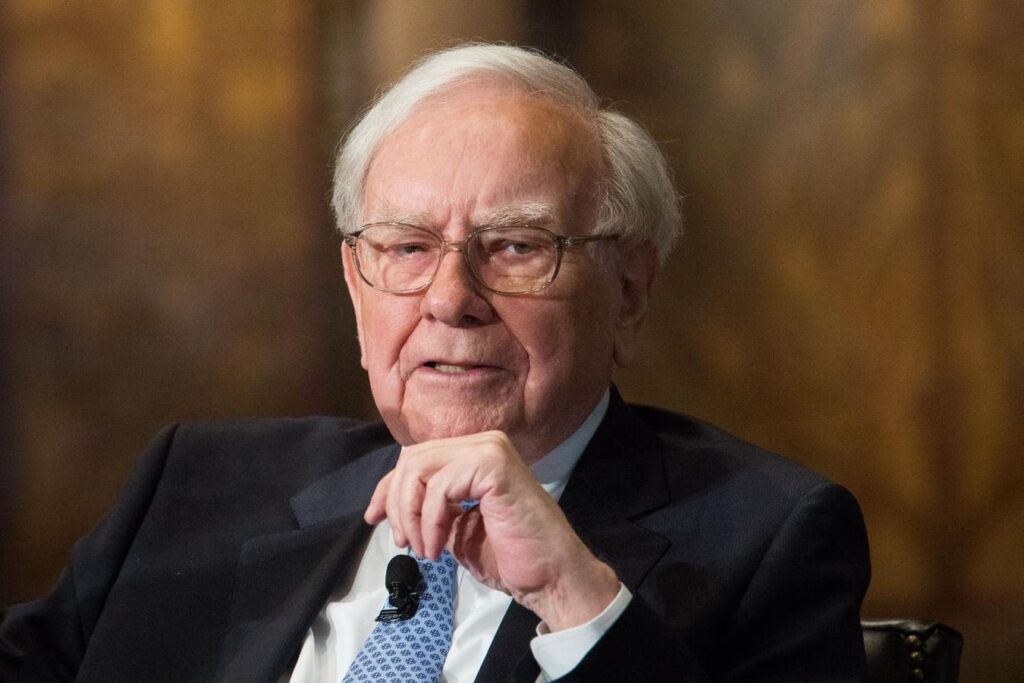If it makes a difference to you that your stocks are down 15%, you need to find a new investment philosophy. – Warren Buffett
Berkshire Hathaway’s annual “Woodstock for Capitalists” was held on Saturday, May 3. It was beyond a packed house on Saturday, with additional attendees spurred on by the 60th anniversary of Berkshire Hathaway as we know it. Warren Buffett, CEO and Chairman, and Greg Abel, Vice Chairman of Non-insurance, answered questions from shareholders for over five hours. Ajit Jain, Vice Chairman of Insurance, joined in answering questions for the first part of the meeting.
Quarterly Earnings
Buffett spoke briefly about first-quarter earnings. He noted that Berkshire’s insurance earnings were as good as they get in 2024, so starting less well this year is unsurprising. Operating earnings fell by 14% higher than last year’s same quarter. Previously, Buffett has said that operating earnings are the “most descriptive” way to view Berkshire since it removes the short-term volatility of market fluctuations in the net earnings.
Insurance underwriting was the primary culprit behind the decline in operating earnings, with wildfire losses negatively impacting results. Other income also declined significantly, primarily due to accounting for foreign currency swings. Excluding insurance and the “other” segment, operating earnings were 9% higher.
The Cash Pile
Berkshire was a net seller of over $1.5 billion in publicly traded stocks, marking the tenth quarter in a row in which Berkshire trimmed its publicly traded stock portfolio. More details will be provided in the upcoming 13F filing. Through stock sales and earnings, Berkshire’s cash hoard has reached over $342 billion. This is a record cash level on an absolute basis and relative to the size of Berkshire Hathaway.
Buffett said that Berkshire “holds a lot more cash and Treasury bills than I would like.” He is always looking for investments, but “things don’t come along in an orderly fashion.” He’d like less cash on hand, even as low as $50 billion. “Occasionally, we will be bombarded with opportunities that we will be happy we have the money for,” he said.
Regarding the recent stock sell-off, Buffett said, “This is not a huge move,” or a “dramatic bear market.” He did note that Berkshire had recently come close to making a $10 billion purchase, but it did not happen.
Tariffs, DOGE, And American Exceptionalism
The first question of the day was about tariffs. Buffett did not directly answer the question, but said, “You can make some very good arguments for the fact that balanced trade is good for the world.” He continued, “There is no question that trade can be an act of war.” Buffett stated that more trade is better and that “Trade should not be a weapon.”
In response to a question about his views on DOGE, Buffett again spoke in more general terms. He said, “The problem of how you control revenue and expenses in government is one that is never really solved, and is one that has hurt many civilizations.” Regarding the US’s enormous fiscal deficits, he noted that “We are doing something that is unsustainable.” Buffett said that the job of reducing costs “should be done.”
After being asked whether American exceptionalism is over, Buffett said, “America has been in revolutionary change since it started.” He was clear in his views when he noted, “I would not get discouraged.”
The End Of An Era
Buffett made the most significant announcement at the end of the meeting, stating that he planned to step down from the CEO role at the end of the year, pending approval from the board of directors. He was recommending that Greg Abel assume the CEO role and that Greg should have the “final word on operations or capital deployment.”
Though it was not explicitly stated, Buffett would likely retain the Chairman title since he promised to be around to help. Buffett added that he had no intention of selling one share of Berkshire. He noted that it was an “economic decision” since the “prospects for Berkshire will be better under Greg than me.”
While it was already clear that Abel was making most of the operational decisions, assuming the final responsibility for all capital allocation decisions is a significant change. Buffett’s capital allocation decisions were a major force in the company’s fantastic performance and in making Berkshire Hathaway what it is today. He transformed a textile company, destined for the trash heap of history, into the sixth-largest company in the S&P 500.
While Buffett’s mind was sharp and seemed more energized this year than last year’s meeting, he is 94 years old. As much as the transition saddens many of us as the Buffett era ends, it is the correct long-term change to give Greg Abel time in the role while Buffett is still around. There will not be another Warren Buffett in my lifetime, but Greg Abel doesn’t need to be Warren Buffett or Charlie Munger. He inherits a Berkshire Hathaway, which owns some outstanding businesses and a Fort Knox balance sheet.
Disclosure: Glenview Trust holds Berkshire Hathaway within its recommended investment strategies. I am a long-time shareholder of Berkshire Hathaway and worked for Salomon Brothers when Warren Buffett became Chairman and CEO.
Read the full article here
